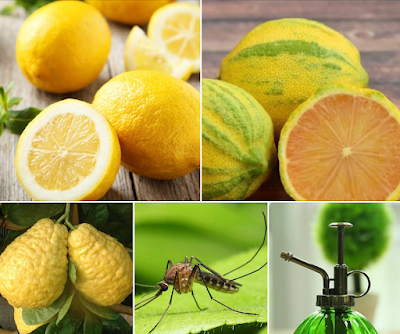Turmeric and Curcumin, A Spice With Many Health Benefits for Your Dog and Cat
-
About Turmeric and Curcumin
- Health Benefits of Turmeric
- Health Benefits of Curcumin
- The Dog Food Industry and Turmeric
- How To Use Turmeric in Your Animal's Diet
- Instructions for Adding Turmeric to your dog or Cat's Diet
- Golden Paste Recipe
- Food and Treat Recipes Made With Turmeric
- Choosing an Appropriate Product - what type of turmeric to use
- How To Make Your Own Turmeric Powder
- How to Store Turmeric and Curcumin
- Cautions and Drug Interactions
- More Herbs and Spices For Dogs and Cats
- General Guide to Daily Intake of Herbs and Spices
1. About Turmeric and Curcumin
Turmeric, a spice is derived from the root of the Curcuma longa (also known as Indian Saffron), a perennial plant of the ginger family. The exact genesis of the plant is not known as the plant’s original origins are lost in the history of ancient trade; however it is likely that the plant originated in South East Asia or South Asia.
The Curcuma longa’s root system includes oblong tubers - similar to those of the ginger plant. The tubers are boiled or steamed, dried, and then ground. The resulting powder has a pungent slightly bitter flavor.
Although dogs have a much better sense of smell than humans - a dog’s noise has a minimum of 300 million olfactory sensors to our paltry 3 million, the dog’s sense of taste is less than ours (a dog averages 1700 taste buds whereas a human has 9000 taste buds). This means that the slightly bitter taste of turmeric is not off-putting for the majority of dogs.
The scent of turmeric is reminiscent of oranges and ginger. Once it is dried and ground into a powder the scent is slightly bitter and medicinal.
2. Health Benefits of Turmeric for Dogs and Cats
Curcumin
is thought to be the principal pharmacological agent in turmeric. As an ancient
medication turmeric was used in traditional Asian medicine as a blood purifier,
liver ailment mediator, for the healing of skin diseases and sores and wounds
and as a stomach tonic. In Thailand turmeric was used as an astringent,
anti-diarrheal agent, appetite stimulant, as a carminative, to treat dizziness,
gonorrhoea, peptic ulcers and as a topical treatment to stop bleeding, treat
insect bites, treat teeth and gums, eradicate ringworm and heal wounds.
Today,
turmeric is one of the most extensively researched herb-spices for
pharmacological use. It is favored for its potentially beneficial use in
treating and/or reducing symptoms linked to an extensive range of health
conditions due to its excellent qualities as an:
- Analgesic (pain fighting)
- Antibacterial
- Anti-inflammatory
- Anti-oxidant
- Antiseptic
- Anti-tumor agent (anti-carcinogen)
- Neuroprotective
Turmeric has been shown to be effective in preventing and/or treating:
5. How To Add Turmeric To Your Animal's Diet
7. How To Make Your Own Turmeric Powder
A Warming, Drying Herb

- Aids in fat metabolism and weight management
- Allergic respiratory disorders - Asthma
- Arthritis
- Curcumin’s anti-inflammatory properties relieves aches and pains associated with arthritis (see additional information under curcumin below)
- Beneficial for trauma from accidents as it helps lower serum levels which would otherwise cause massive inflammation leading to the shutdown of the heart and other organs
- Brain Health
- Atherosclerosis (hardening of the arteries – heart disease) by lowering bad LDL cholesterol
- Bacterial infections – the volatile oil is an external broad spectrum antibiotic which acts to prevent bacterial infection in wounds
- Blood purifier – beneficial in the treatment of skin disorders
- Cancer inhibitor
- Cardiovascular conditions
- Chemotherapy – reduces the negative side-effects of chemotherapy
- Detoxification
– turmeric is a natural liver detox aid
- Disinfectant for wounds and burns (antiseptic and antibacterial)
- Digestive disorders
- Turmeric induces the flow of bile which acts to breakdown fat
- Protects against injuries caused by some medications
- Helps prevent gas/bloating
- Inflammation (turmeric’s anti-inflammatory quality has been compared to topical hydrocortisone)
- Inflammatory Bowel Disease (IBD
- Memory disorders
- Neuritis (inflammation of the optic nerve)
- Neurological Disorders
- Peptic ulcers
- Skin disorders
- Strengthens ligaments
Additional Health Benefits of Turmeric
- High in fiber
- Rich in vitamins (high in vitamin B6 and potassium) and minerals (high in iron and manganese)
- Excellent for metabolism health and a natural weight-loss aid
- Turmeric is even more powerful as a cancer inhibitor when teamed up with cauliflower.
- This dog-food recipe includes both turmeric and cauliflower.
3. Health Benefits of Curcumin
a partial list
- Anti-oxidant (anti-aging)
- Anti-Angiogenic (tumor preventing)
- Anti-Carcinogenic
- Anti-Diabetic
- Anti-Inflammatory
- Anti-Apoptotic (preventing cell death i.e. from radiation)
- Anti-Metastatic (inhibits the over-growth of cells)
- Cardiovascular Protection
- Lower LDL (bad) Cholesterol
- Detox
- Imunomodulatory (immune system enhancing)
- Neuro-Protective (protects the Central Nervous System – CNS)
Anti-Inflammatory
Curcumin has been shown in numerous
studies, to be comparable to the potent conventional medicines hydrocortisone,
phenylbutazone as well as over-the counter anti-inflammatory agents. But unlike
these conventional mendicants curcumin does not have toxic side-effects.
Cancer Inhibitor
Due to its powerful antioxidant
properties. Curcumin is effective in protecting colon cells from free radicals
that can cause damage to healthy cell DNA – of particular importance as cell
growth in the colon is particularly rapid. Curcumin also helps the body destroy
mutated cancer cells thereby stopping the spread of cancer throughout the body.
Curcumin enhances liver function – the liver is a primary toxin filter for the
body, so enhancing its function supports health in many ways. Curcumin is also
considered to inhibit the growth of the protein that is thought to be
instrumental in triggering tumor formation. Curcumin has been shown to inhibit
transcription factors (the ‘master switch’ that regulates genes required for tumor formulation).
Lower Bad Cholesterol and support
Heart Health
Curcumin is a messaging molecule that communicates with
genes in live cells. This active agent of turmeric directs cells to increase
the production of messenger proteins that in turn direct the creation of
receptors for LDL (Bad) cholesterol. An increase of LDL-receptors enables the
liver to clear more LDL from the body.
Preventing Toxic Loading and Liver
Damage
The liver
plays a key role in detoxifying the body. Dogs and cats are exposed to ever
increasing amounts of toxins in their diet (i.e. as found in many commercially
produced dog foods and treats, dental care products – dental chews and toothpaste) and their environment (i.e. household cleaners, road salt, grass, shampoo etc.) the incidence of liver damage
and liver failure is exponentially increasing. Turmeric boosts liver detox.
Rheumatoid Arthritis
Clinical studies have proven that
curcumin provides highly powerful antioxidant effects as its ability to
neutralize free radicals is substantial. Free radicals cause the painful
inflammation and eventual damage to joints.
Defense Against Neurological Diseases
of Old-Age
Curcumin activates gene codes for the production of antioxidant
proteins. This action enhances protection against some neurological diseases
brought on by old age - i.e. canine dementia.
Weight and Metabolism Management
If your dog is overweight you might want to try adding either
turmeric or curcumin to his/her daily diet...new research by the United States
Department of Agriculture (USDA) has confirmed that curcumin helps to speed up
metabolism.
4. The Dog Food Industry and Turmeric
Many commercial dog food manufacturers are now putting turmeric in their dog
kibble. But don’t be fooled by advertising. The inclusion of turmeric
in commercially prepared dog kibble is not an indication that the kibble is good for your dog.
Dry highly processed food products(dog kibble, dry food, biscuits, canned food, wet food) are not species appropriate. Adding turmeric does NOT change the FACT that highly processed food products destroys a dog and cat's long-term health.
The quantity and quality of the
turmeric included in the food may be insufficient to have any positive effect
on your dog’s health and worse, the turmeric may be of poor quality (i.e.
grown with pesticides).
useless. It's also important to understand that turmeric is NOT appropriate for all dogs and cats. More on that further below.
5. How To Add Turmeric To Your Animal's Diet
5.1 Instructions For Adding Turmeric To Your Dog or Cat's Food
You'll Need:
- Fresh ground black pepper
- Turmeric powder
- Glass jar with air tight lid.
Preparation:
- Place the following ingredients in a glass jar.
- 1 tsp of fresh ground black pepper.
- 1/4 cup of turmeric powder.
- Mix well.
- The turmeric powder is now ready for use.
5.2 Golden Paste Recipe
Golden paste greatly increases the efficacy of turmeric's medicinal properties. Golden paste is quick and simple to make.
For the golden paste recipe:
- Go to this article.
5.3 Food and Treat Recipes Made With Turmeric:
- Homemade Dog Food Recipe
- Homemade Cat Food Recipe
- Egg, Meat and Turmeric Spice Treats
- Blueberry and Coconut Oil Spice Treats
- Coconut and Turmeric Spice Drops
6. What Type of Turmeric (or Curcumin) is Best
You
can use powder (most commonly available), crushed or fresh root. I use the
powder form (ground turmeric). The quality of turmeric varies vastly.
Turmeric sold in many grocery stores and bulk food stores is mass produced, grown
with pesticides, herbicides, and can be contaminated with lead and other heavy metals.
For safety and maximum benefit purchase turmeric from a reputable supplier
of high-quality organic turmeric.
7. How To Make Your Own Turmeric Powder
You'll Need
- Fresh turmeric rhizomes
- Non-teflon coated baking sheet
- Non toxic parchment paper
- Cutting board
- Knife or large vegetable peeler (i.e. potato peeler)
- Glass bottle with air-tight lid.
Instructions
- Wash the fresh rhizomes.
- Don't boil, bake or otherwise heat the fresh turmeric rhizomes.
- Use
a kitchen knife to cut the fresh rhizomes into very thin slices, the
thinner the better, i.e. 1/16 inch thick slices. You can choose to use a
large vegetable peeler to thinly slice the fresh rhizome.Line the
backing sheet with non-toxic parchment paper.
- Place the thinly sliced rhizomes on the lined baking sheet.
- Make sure the rhizome slices are not touching each other.
- Place the baking sheet in a well ventilated area out of direct sunlight.
- Allow the sheet of sliced rhizomes to air dry.
- When the rhizomes easily snap in half when a little pressure is applied, the rhizomes are ready to grind to a powder.
- Grind the rhizomes in a herb grinder.
To Store The Turmeric Powder
- Put the ground turmeric powder in a glass container with an air-tight lid.
- Keep the jar in a cool, dark cupboard.
8. How To Store Turmeric or Curcumin
- Fresh turmeric rhizome should be kept in the refrigerator.
- Turmeric and curcumin powder should be stored in a tightly sealed, container and kept in a cool, dark, dry location.
- You can use the fresh rhizomes to make your own turmeric powder, see below.
9. Cautions, Drug Interactions, Contradictions
Turmeric and Curcumin are Natural Dyes
- Turmeric and curcumin contain strong pigments that can stain clothing, carpets, and upholstery.
- Be careful when working with turmeric and curumin. If you drop this spice, the deep yellow-gold color (pigment) will stain the surface it falls on.
Pregnant Dogs and Cats
- If your dog or cat is pregnant there is a chance that turmeric might stimulate the uterus.
Surgery
- Turmeric might slow blood clotting so stop using turmeric two weeks before surgery.
- If your dog or cat is on an anticoagulant / anti-platelet drugs use caution as turmeric may strengthen the effects of blood thinning medications thereby increasing the risk of bleeding.
- For example warfarin (Coumadin), aspirin and other blood-thinning medications;
- If adding turmeric to the diet you may have to make some adjustments to medications.
- For example drugs to treat diabetes;
- Turmeric may increase the effect of blood pressure lowering drugs thereby increasing the risk of hypoglycemia (low blood sugar);
- If adding turmeric to the diet you may have to make some adjustments to medications
Drugs that Reduce Stomach Acid
- Turmeric is a natural treatment for increasing stomach acid and related conditions such as Acid Reflux (GERD)
- Turmeric may interfere with the effects of drugs that reduce stomach acid
- If adding turmeric to the diet you may have to make some adjustments to medications
Non-Steroidal Anti-inflammatory Drugs (NSAIDs), Steroidal Drugs
- Turmeric is a natural anti-inflammatory
- Turmeric may increase the effects of NSAIDs and Steroids
- If adding turmeric to the diet you may have to make some adjustments to medications
Turmeric Sensitivity
Some dogs and cats are hypersensitive to turmeric and curcumin.
If, after starting use of turmeric your animal's breath, urine, or fur develops an odorous smell (i.e. pungent smell like cat urine), your animal has a sensitivity to turmeric.
If any of the above symptoms occur, turmeric is NOT suitable for your animal. Stop giving your animal turmeric.
Turmeric is also warming and drying, which is beneficial to some individuals, but contradicted for others.
Intolerance
can also result in other side effects such as constipation and other gastrointestinal disturbances including diarrhea, nausea, reflux,
stomach pain, and vomiting.
A Warming, Drying Herb
Intolerance
can also result in other side effects such as constipation and other gastrointestinal disturbances including diarrhea, nausea, reflux,
stomach pain, and vomiting
Turmeric is rich in tannin. Tannin has potent astringent properties which that provide a drying effect and warming effect of this spice on the body
If your dog or cat has a health condition, or body type that requires cooling, rather than heating and drying, don't give your animal turmeric
Signs that this spice does not suit your animal's constitution:
- Excessive, unusual thirst after starting turmeric
- Excessive,
unusual heating such as panting and seeking out cool places to lie
down.
If these symptom occur, discontinue use of turmeric in your
animal's diet.
10. More Herbs and Spices for Dogs Cats
You
can read this article for:
- A list of Herbs and Spices that Are Good for Dogs
- Benefits and Uses of many Herbs and Spices for Dogs
- List of Herbs and Spices that Are Not Good for Dogs
- When Should Herbs & Spices Not be Introduced to Your Dog’s Diet
11. General Guideline for Daily Intake of Turmeric
Click on the dosing chart below to zoom in.

Holistic Diet, Nutrition, Wellness Services Tailored to Your Individual Dog and Cat
For information about my holistic diet, nutrition and wellness services, visit my holistic wellness services page.
Maintain good health | Address acute and chronic health issues | Pre and post surgery support and recovery
My holistic wellness services are available worldwide via video consultation.
🌎 USA | Canada | UK | Europe | Australia | New Zealand | Asia | South and Central America | Africa | UAE
📱FaceTime | Facebook | Skype | WhatsApp
To set-up your holistic wellness consultation get in-touch via email, go to my contact me page.
Holistic Behavioral Services for Your Dog
For information about my holistic behavioral services, visit my holistic behavioral services page.
For dogs of all ages, sizes and breeds.
My behavioral services are available worldwide via video consultation.
🌎 USA | Canada | UK | Europe | Australia | New Zealand | Asia | South and Central America | Africa | UAE
📱FaceTime | Facebook | Skype | WhatsApp
To set-up your holistic behavioral session get in-touch via email, go to my contact me page.
Affiliations to Companies
✓ None.
✓ I don't sell food, supplements, or other products.
✓ I'm not aligned with any companies.
Article and graphics by Karen Rosenfeld.










